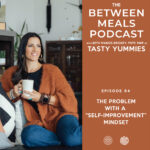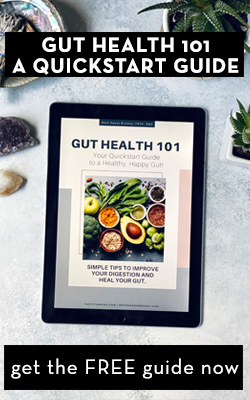The First Step to Happy Hormones honors the very delicate balance of our endocrine system by treating dysfunction on a foundational level rather than simply managing or masking symptoms. This is the first post in a Hormone-Focused Series from Nutritional Therapy Practitioner Brynn D’Avello.
My favorite books come from the 1800s, (primarily Jane Austen’s novels), but Brontë, Dumas, Tolstoy and Dostoyevsky populate my “pleasure reading” shelves as well. The common outcry of women in literature of that period was, “Oh my poor nerves!” Today’s self-diagnosis is, “My hormones are out-of-whack.” Interestingly, the nervous system and the endocrine (hormone secreting) system work together frequently. Epinephrine and norepinephrine are classified as neurotransmitters and hormones.
When clients come to me for nutritional help to balance their hormones I tell them that it’s not a simple process and will require work on my part to investigate where the imbalance is originating to know how to support the underlying foundations of their body. It also takes commitment on the part of the client to change their habits. Endocrine function is a system of complex relationships. The goal is to support the entire system, not just to manage the symptoms. Each client has their own unique needs, and it is important to lay the right foundation for digestion, hydration, blood sugar regulation, mineral and fatty acid balance through a nutrient-dense diet.
What Are Hormones Exactly?
Basically, they are chemical messengers that carry information and orders to organs in the body. They are targeted for specific cell receptors around the body and are used to keep your body in homeostasis, or in balance. We all know that hormones are a key component in reproduction, and while many of us probably only think about them in relation to PMS hormones are critical in many other body processes. Other functions hormones are responsible for are regulating metabolism and energy balance, glandular secretions, some immune system activities; they play a part in the contraction of smooth and cardiac muscles; they control growth and development, and help establish circadian rhythms.
Hormones are released into the bloodstream by various endocrine glands, and circulate through the body until a cell that recognizes that particular hormone responds to it. This effect can take a while, sometimes days and will linger until the hormones have cleared from the blood. The liver is in charge of deactivating certain types of hormones, like estrogen, while the kidneys excrete other types.
The body has to build hormones from different materials like cholesterol, amino acids, minerals, proteins, peptides and fatty acids. I hope you are starting to see where nutrition can make a positive change in hormonal imbalance. By putting high quality ingredients into the body, your body will balance itself.
Hormones have a hand in just about every part of life from your state of mind and behavior, to your body shape and your reaction to stress.
So, how do you know you need some balance? Here are a few common signs:
- Mood swings
- PMS
- Depression
- Decreased libido
- Breast tenderness
- Increased facial hair
- Thinning hair
- Vaginal dryness
- Weight gain
- Cellulite
- Brittle nails
- Irregular, heavy or painful periods
- Thyroid dysfunction
- Endometriosis
- Erectile problems
- Infertility
- Decreased strength
- Sleep issues
- Night sweats
- Difficulty reaching orgasm
- Chronic acne
- Brain fog
- Digestive issues
- Fatigue
- Headaches/migraines
- Anxiety
- Panic attacks
- Concentration problems
- Excess worrying
- Constipation
- Inflamed joints
- Stiffness
- Incontinency
- Puffy eyes
Let’s Talk About Stress and The First Step to Happy Hormones
Fight-or-flight is a chemical reaction that our body uses when we are confronted with a stressor. In the olden days stress could be something like running from a saber-tooth tiger. The body shuts down certain functions that aren’t involved with keeping you alive in that moment. Your blood pressure goes up, heart rate increases, the airwaves and pupils dilate, digestion and immune function slows or stops, and the liver starts releasing glucose to send energy to your muscles. Once the stressor is gone, your body function returns to normal.
However, in today’s modern world we are constantly bombarded with stressors. From traffic, to paying bills, to your heinous boss, to that troll leaving a rude comment on your Instagram feed, and maybe most importantly the food you eat. Little things pile up with the big things to push our bodies into stress-fighting overdrive. Long lasting, extreme or unusual stress pushes the body into the resistance reaction, which helps the body keep fighting a stressor long after the fight-or-flight response dissipates.
Our bodies are equipped to deal with acute stress, not chronic. The adrenal glands are in charge of the stress response. They view their job as life and death in the immediate moment. Adrenal function is given preference over reproduction, metabolic rate, and any other endocrine function. So the adrenals are allowed first dibs at nutrients and hormonal precursors. Pregnenolone is considered a precursor for the production of the adrenal and sex hormones. Once you reach a state of chronic stress the body will steal the pregnenolone and progesterone to convert it into cortisol, throwing off the normal estrogen/progesterone ratio. We have to actively seek out ways to de-stress our lives and plug in to self-care practices.
I will be breaking down how to support hormone balance with each of the foundations of nutritional therapy in the coming posts, but for now, the first step to hormonal health, while simple in it’s approach is to start a habit (or habits) that helps reduce stress in your life. Meditation, yoga, light exercise, an evening walk, deep breathing, listening to a comedy show, laughing, or spending quality time with loved ones are all great activities. Do something that makes you happy.
If you would like a complete individualized plan specifically created just for you contact me or a local Nutritional Therapy Practitioner to start the process.
About Brynn D’Avello:
Southern roots have given my family a love of sitting down to eat good home cooked meals together. Flavor was never in short supply, although as a young child processed food was. I went to school with a hand packed lunch in my personalized lunchbox every day. As I moved into junior high, I began making poor food choices as the “SAD” diet (Standard American Diet) became convenient and ever present. Diagnosed with Grave’s Disease, an autoimmune thyroid disorder, at 20 I struggled through poor health, daily medications, and eventually through a high-risk pregnancy. My son was diagnosed with Autism and Tourette’s Syndrome at 6-years-old.
Realizing that what we eat is foundational to optimal health I began researching, studying and cooking real food. I was led to the Nutritional Therapy Association to become a certified Nutritional Therapy Practitioner. I followed that by becoming a certified Epidemic Answers Health Coach to learn more about the new childhood epidemics: Autism, ADD/ADHD, asthma and allergies. I focus on growing families with preconception support, fertility enhancement, pregnancy & post-partum support and first foods for babies, and working with kids on the spectrum to optimize their wellness.
Website: https://www.thymetoturnip.com
Instagram: https://www.instagram.com/thyme_to_turnip/











